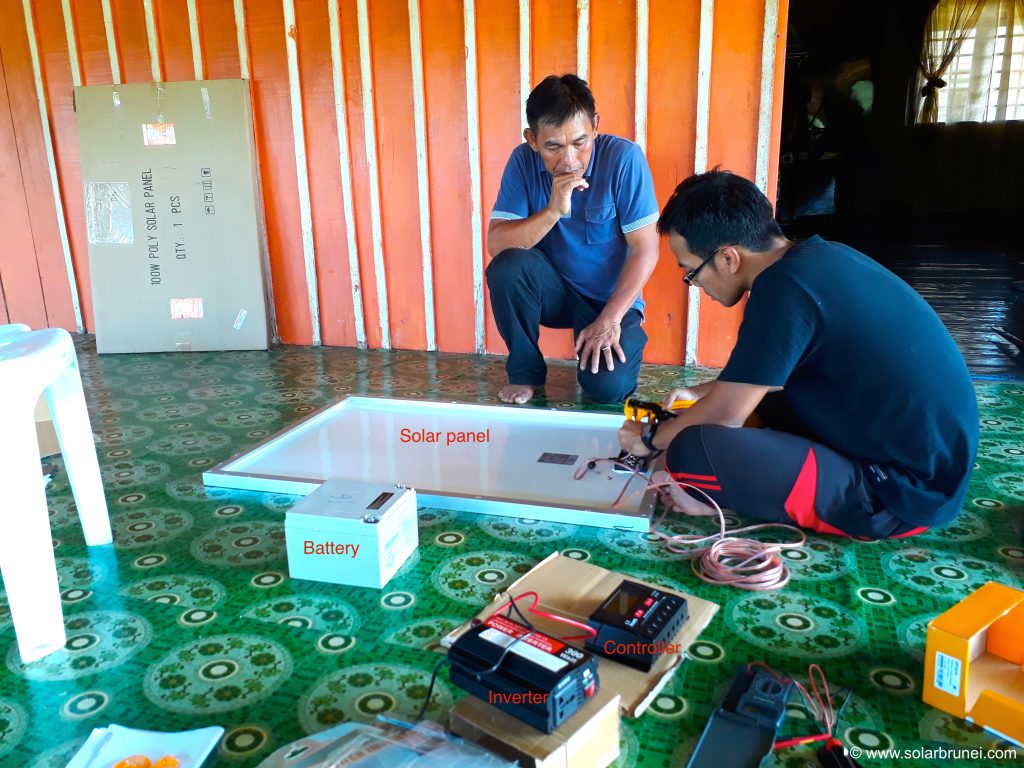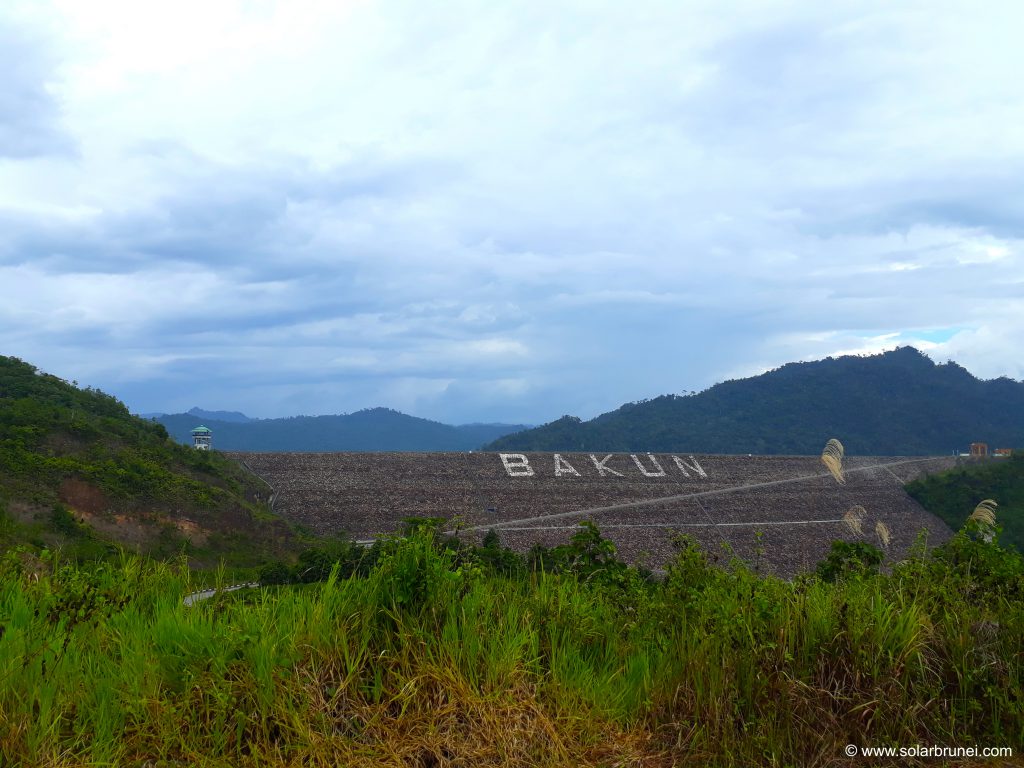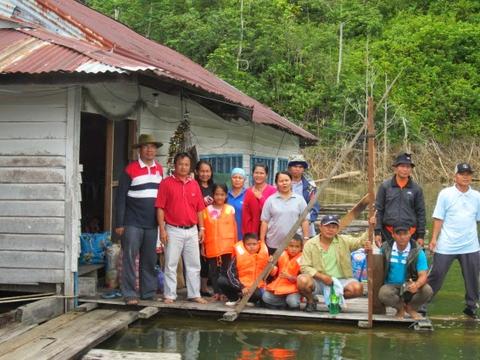Photo: In front of Lepo Kulit – one of the Kenyah tribe’s longhouses with our host Kenyah family.
On the morning of August 6th last Sunday, we began our journey to Sungai Asap, in Belaga Sarawak. We started our journey from Miri, where Min Sheng Khoo and Shavez of 1StopBorneo Wildlife Club picked us up. The journey lasted roughly 4 hours with a pit stop in Bintulu town where we met Francis Ngu Hown Hua who have been keeping our solar panels for us. After stopping in Bintulu, our journey continued for another 3 hours through mostly small roads surrounded by forests. At roughly 10 in the evening, we arrived at Lepo Kulit, one of the many longhouses in Sungai Asap where we were greeted by our Kenyah friends, Awan and wife.
The main purpose of our journey was to put up solar panels and to teach them how to properly connect and use them as well as to raise awareness on ways they can adopt to curb their electricity cost. At the moment, their source of electricity is from the local grid which they can barely afford (costs three times more than in Brunei!) and from diesel generators which is also troublesome to keep up as they have to travel a great distance just to buy a refill.

Our 3 days 2 nights stay there was an eye opening experience where we get to see first hand the effect of modernisation on minority ethnic tribes and the environment. While people in the Peninsular Malaysia enjoys a steady supply of electricity (with Bakun Hydroelectric Power HEP as one of their sources), some 15,000 people were forced to leave their ancestral land and relocate to a land foreign to them.
Sungai Asap is the direct result of the construction of the gigantic Bakun Hydroelectric Power (HEP) Dam some 20 years ago. A land area the size of Singapore was cleared to make way for the construction.


From our standpoint, these people should be living a much better life now with access to education, health care and all sorts of modern amenities like electricity, water supply, the Internet, smart phones and televisions. But sadly, this is not true from their perspective.
According to Awan, although life was much simpler back in his old village ‘Lung Jawe’, so were their needs and they did not need money to get on with their daily lives. Resources were aplenty and just a step away. They could easily hunt and fish whenever they need to. But now in Sungai Asap, the natural “free” resources are limited and everything needs to be bought with money! Majority do not even have the necessary skills to find proper stable employment to feed themselves. Only few of the skilful ones were lucky to find employment at the dam and other logging companies around the area.
During our stay there, we also visited a Penan longhouse hoping to buy their signature rattan backpack. Unfortunately and to our disappointment, they did not have any for sale at the moment as they could only weave a limited number at a time. We later found out that one of the reasons is the shortage rattans. It turns out that they have to go through immense difficulties to search and to obtain the rattans as many of the nearby jungles have been destroyed for loggings.

This forced change in their lifestyle also breeds other problems among themselves such as drug use, thefts and other crimes.
Because of these difficulties, some opted to stay behind on their ancestral “land” in Lung Jawe – which is 5 hours away by boat from the Bakun Dam via Rajang River. Despite the village now flooded by the dam, they’ve built “jelatongs” (floating houses kept afloat by logs) to live in. Although hazardous, it’s the only way they know how to live.

The solar panels and lightings were funded by generous donors from Malaysia. This trip would not be possible without Shavez of 1StopBorneo Wildlife Club, Min Sheng Khoo and Francis Ngu Hown Hua.

